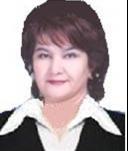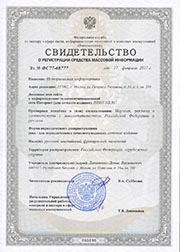MAIN PAGE
> Back to contents
Historical informatics
Reference:
Ishankhodzhaeva Z.R., Tagaev Z.E.
Digital Transformation of Science and Education: International Conference in Tashkent
// Historical informatics.
2022. № 4.
P. 191-197.
DOI: 10.7256/2585-7797.2022.4.39545 EDN: QNKFSU URL: https://en.nbpublish.com/library_read_article.php?id=39545
Digital Transformation of Science and Education: International Conference in Tashkent
Ishankhodzhaeva Zamira Raiimovna
ORCID: 0000-0002-8495-8122
Doctor of History
Professor, Department of History of Uzbekistan, National University of Uzbekistan named after Mirzo Ulugbek
101174, Uzbekistan, Tashkent, Universitetskaya str., 4, room 309

|
zamira.i@rambler.ru
|
|
 |
|
Tagaev Zhasur Erkinovich
ORCID: 0000-0002-8202-078X
PhD in History
Associate Professor of the Department of History of Uzbekistan, National University of Uzbekistan named after Mirzo Ulugbek
100174, Uzbekistan, Tashkent, Universitetskaya str., 4, room 309

|
jasur.erkinovich.1990@mail.ru
|
|
 |
|
DOI: 10.7256/2585-7797.2022.4.39545
EDN: QNKFSU
Received:
23-12-2022
Published:
30-12-2022
Abstract:
The article is devoted to the scientific and practical conference with foreign participation "The importance of digital technologies in the study of the history of Uzbekistan", held by the Department of History of Uzbekistan of the Mirzo Ulugbek National University of Uzbekistan on September 28, 2022. The introduction of digital technologies in science and education is a necessary condition for the development of society in the context of digital transformation. To train modern specialists in all areas of education, it is necessary to use digital technologies in educational programs at the university and postgraduate levels, as well as in research activities. Today, virtual museums, creative exhibitions, various online conferences are organized in Uzbekistan, which contribute to the rapprochement of peoples and actively attract young people. All this was discussed at the conference. About 100 reports on the main directions of digital transformation of science and education were presented at the conference. Special attention was paid to virtual reconstructions of cultural and historical heritage, digital technologies in archeology, informatization and digital technologies in historical education. The conference supported the efforts of Uzbek universities to form a unified scientific and educational space and called for extensive training of specialists using digital methods in historical science and education. The participants of the conference noted the high level of its holding and organization and proposed to make the conference traditional – to hold it every two years.
Keywords:
conference, science, education, digital transformation, technology, research, report, direction, history, information
This article is automatically translated.
You can find original text of the article here.
The introduction of digital technologies in science and education is currently a necessary condition for the development of society in the context of digital transformation. Modern technologies and telecommunications make it possible to change the nature of the organization of scientific research and the educational process, modernize the information and educational environment, transfer science and education to a new qualitative level, deeply motivate researchers and students in obtaining and assimilating new knowledge, which will eventually lead to an improvement in the quality of life of society [1; 2]. To train specialists who meet the challenges of the time, it is necessary to use digital technologies in educational programs at all levels, primarily university and postgraduate, as well as in research activities. Today, modern technologies are actively used in Uzbekistan to create digital platforms for intercultural dialogue. We are talking about virtual museums and creative exhibitions, various online conferences that promote the rapprochement of peoples, including through the active involvement of young people in such projects. This work is carried out on the basis of decrees and orders of the President of the Republic of Uzbekistan Sh.M. Mirziyoyev, as well as orders of the Ministry of Higher and Secondary Special Education of the Republic of Uzbekistan (see Note 1), according to which, within the framework of the applied grant A-OT-2021-542 (see Note 2) the Department of History of Uzbekistan of the National University of Uzbekistan named after Mirzo Ulugbek organized and held a scientific and practical conference with foreign participation "The importance of digital technologies in the study of the history of Uzbekistan" on September 28, 2022. During the conference, special attention was paid to the consideration of the possibilities of using digital technologies for educational and research processes in universities and research centers, among which the following aspects are highlighted: · digital technologies as educational systems based on artificial intelligence; · unlimited possibilities for collecting, storing, transmitting, converting, analyzing and applying information of a diverse nature; · increasing the availability of education; · ensuring continuity of education; · development of personality-oriented learning, creation of a unified information and educational environment; · improvement of methodological and software support of the educational process; · development of independent search and research activities; · increasing the motivational side of training, etc. The conference was organized by the Ministry of Higher and Secondary Special Education of the Republic of Uzbekistan, the Ministry of Innovative Development of the Republic of Uzbekistan, the Mirzo Ulugbek National University of Uzbekistan. The co-organizers of the conference were: 1. Interregional Association "History and Computer" (established in the Russian Federation in 1992). 2. Department of Historical Informatics, Faculty of History, Lomonosov Moscow State University. 3. Institute of Asian and African Countries of Lomonosov Moscow State University. 4. Humanitarian Institute of Peter the Great St. Petersburg Polytechnic University. 5. Humanities Institute of the National Research Novosibirsk State University. 6. The Center for Eurasian Studies of the National Research Tomsk State University. 7. L.N. Gumilev Eurasian National University. 8. The State Museum of "Memory of Victims of Repression" under the Cabinet of Ministers of the Republic of Uzbekistan. In total, about 100 reports were presented at the conference in the following areas: 1. Virtual reconstruction of historical events and lost monuments (in accordance with historical periods). 2. The use of digital technologies in the study of history and special historical disciplines. 3. Digital technologies in the humanities: the experience of Uzbekistan and foreign countries, in particular the countries of Central Asia. 4. Digital technologies in studying the heritage and perpetuating the memory of victims of repressive policies in the Soviet period of Uzbekistan's history. 5. Digital transformation of science and education at the present stage.
In the course of the conference, reports and reports were heard and discussed, the tasks of further development of information technologies in historical research and higher historical education were determined. The conference participants were particularly interested in the report of the Corresponding Member of the Russian Academy of Sciences, Head of the Department of Historical Informatics of the Faculty of History of Lomonosov Moscow State University L.I. Borodkin "A new stage of digital transformation of historical research: the possibilities of big data technologies and artificial intelligence", which focused on the use of artificial intelligence technologies by historians and the creation of three-dimensional reconstruction disappearing and lost monuments of architecture and objects of cultural heritage. The report of a member of the Rosarchiv Commission for Research and Methodological Work, Doctor of Historical Sciences Yu.Yu. Yumasheva (Moscow), devoted to the creation of electronic copies of archival documents as a modern method of preserving historical and cultural heritage and expanding access to it, was also interesting. The head of the National Center of Archeology of Uzbekistan, Doctor of Historical Sciences F.A. Maksudov, reported on the widespread use of digital technologies in archaeological research on the example of the monuments of Tuganbulak and Tashbulak. I would also like to mention the report of Professor of the Al-Farabi Kazakh National University, Doctor of Historical Sciences S.A.Zhakisheva "Mathematical and statistical methods and computer technologies in the study of repressions against Baiism at the turn of the 1920s-1930s." Interesting materials about historical science in Kazakhstan were presented by B.G. Ayagan, Honorary Academician of the National Academy of Sciences of the Republic of Kazakhstan, Deputy Director of the Institute of State History of the Science Committee of the Ministry of Education and Science of the Republic of Kazakhstan. A researcher from Japan, PhD Ueda Akira, reported on the use of GIS technologies in the study of the history of Uzbekistan, in particular, the Fergana Valley. At the breakout sessions, it is possible to note the speech of Doctor of I.N. V.N. Vladimirova and Ph.D. E.P. Krupochkin (Russia, Altai State University) with the report "Information and cartographic support of historical studies of the Trans-Siberian Railway". Interesting were the reports of I.M. Shamsieva (National University of Uzbekistan) "Digital Storytelling – historical education in a different way", and her colleagues O.P. Kobzeva and N.A. Vaisova "Issues of digitalization of the history of the Great Silk Road on the example of creating an online platform of the same name", as well as the report of a young scientist D.V. Alinazarova "The use of digital technologies in the study of the history of printing in the Fergana Valley", which raised many questions. Finally, I would like to mention the speech of A.T.Tazhibayev and T.V. Marmontova (Kazakhstan) "Digitalization of education as a path to a new paradigm of socio-humanitarian knowledge". All the reports presented at the conference were published in an electronic publication with an article-by-article assignment of DOI, indexing was carried out in the scientometric database Google Academy (Google Scholar) and placement in the resources of the international electronic library Inlibrary [3]. The conference materials can also be found on the Digital History – Raqamli tarix electronic platform of the Faculty of History of the Mirzo Ulugbek NUUz [4], which was created within the framework of the already mentioned project A–OT-2021-542. Following the results of the plenary, breakout sessions and discussions, as well as the general work of the conference, a resolution was adopted, including the following recommendations: · to carry out close scientific cooperation in research related to the use of digital technologies in education and science with the involvement of scientists from universities and research centers of Uzbekistan, as well as foreign countries with extensive experience in this problem; · consider scientific and educational research based on information technologies as a priority; · strengthen cooperation of scientists and university teachers with IT specialists in the field of using digital technologies in the study and promotion of historical knowledge; · expand and strengthen intersectoral, interregional and international research and activities in the field of training highly qualified personnel in this field; · pay special attention to the possibilities of publishing joint scientific papers, applications for grants and competitions, the development of exchange and networking programs between universities, research institutes, specialized centers of Uzbekistan and foreign countries. The Conference supports the efforts of Uzbek universities to form a unified scientific and educational space and considers it necessary to continue implementing measures aimed at cooperation, academic mobility, exchange of experience and advanced technologies in the field of digital history, including all areas of historical science. The conference participants consider it relevant to work on the conclusion of agreements between universities of Uzbekistan on training in the field of digital history, the widespread use of information technologies and artificial intelligence in higher historical education. The conference participants noted the high level of organization and holding of this event, which is recommended to make traditional. The Organizing Committee is charged with organizing a Digital History Center on the basis of the Department of History of Uzbekistan of the Faculty of History of the Mirzo Ulugbek National University of Uzbekistan, with the involvement of young scientists and university teachers of Uzbekistan, with the subsequent formation of a scientific school on digital history, as well as holding a scientific and practical conference "The use of digital technologies in the study of the history of Uzbekistan" with international participation once a year two years. notes
Note 1. Decree of the President of the Republic of Uzbekistan Sh.M. Mirziyoyev No. R-5598 dated October 8, 2020 "On additional measures for deeper study of the heritage and perpetuation of the memory of victims of repression"; Decree of the President of the Republic of Uzbekistan No. PF-6097 dated October 29, 2020 "On approval of the concept of development of science until 2030"; Order of the Ministry of Higher and Secondary Special Education of the Republic of Uzbekistan No. 97 dated March 14 , 2022 Note 2. Project A-FROM-2021-542 — "In-depth study of the heritage of the repressed, perpetuation of their memory, the importance of their socio-political, spiritual and educational ideas in the education and upbringing of youth" of the Ministry of Innovative Development of the Republic of Uzbekistan. The project was carried out by the staff of the Historical Faculty of the Mirzo Ulugbek NUUz. The project provides for the creation of an electronic database, mobile applications on a given topic. The project manager is prof. Z.R. Ishankhodzhayeva.
References
1. Borodkin L.I., Vladimirov V.N.-Historical research in the context of the "digital turn": new challenges, new answers // Historical informatics.-2019.-No. 3.-P. 1-5. DOI: 10.7256/2585-7797.2019.3.31386 [URL:] https://nbpublish.com/library_read_article.php?id=31386
2. Garskova I.M.-"Digital turn" in historical research: long-term trends // Historical informatics.-2019.-No. 3.-P. 57-75. DOI: 10.7256/2585-7797.2019.3.31251 [URL:] https://nbpublish.com/library_read_article.php?id=31251
3. Scientific electronic library inLibrary. Access mode [URL]: https://inlibrary.uz/index.php/scientific-practical/index (accessed 20.12.2022)
4. Raqamli Tarix. Access mode [URL]: https://raqamlitarix.uz/ (accessed 20.12.2022)
Peer Review
Peer reviewers' evaluations remain confidential and are not disclosed to the public. Only external reviews, authorized for publication by the article's author(s), are made public. Typically, these final reviews are conducted after the manuscript's revision. Adhering to our double-blind review policy, the reviewer's identity is kept confidential.
The list of publisher reviewers can be found here.
The article is devoted to the scientific and practical conference with foreign participation "The importance of digital technologies in the study of the history of Uzbekistan" held on September 28, 2022, organized by the Department of History of Uzbekistan of the Mirzo Ulugbek National University of Uzbekistan. In its content and form, the article is an information message about a scientific event, its organization and content. The genre and format of the article under consideration determine the methodology used in it. The main place here is occupied by the description of a scientific event with elements of scientific analysis of the role and place of the conference in the digital transformation of historical science and education in Uzbekistan. The presentation is based on an information approach and the principle of historicism. The relevance of the article is determined by the fact that it reflects the real processes taking place in historical research and higher education, we are talking about digital transformation and its main consequences, which are given a lot of space in the article. The scientific novelty of the article is due to the reflection in it of information that was presented in the reports and communications of the conference under consideration quite recently and is being introduced into scientific circulation for the first time. The volume of the article is small, so the author(s) did not consider it necessary to introduce a heading of the text with separate headings for each part of it. However, this did not interfere with the general logic of the presentation. The article opens with an introductory part, which highlights new challenges in historical science and education caused by the digital transformation of today's society. Further information is provided on the time and place of the conference, its organizers and co-organizers, and the main areas of work. It should be noted that among the co-organizers of the conference, scientific and educational institutions are mentioned not only in Uzbekistan, but also in Russia and Kazakhstan. The following is a brief description of the most interesting reports and messages, the details of the location of the conference materials are indicated. After that, a number of recommendations and an overall assessment of the event are outlined. The article is written in scientific language, its main messages are expressed clearly and clearly. Due to the informational nature of the reviewed work, the bibliography of the article is exclusively auxiliary and contains a small number of works related to the digital transformation of historical science and education, as well as links to websites with the materials of the conference itself. There are no elements of direct discussion in the article, however, the issues raised in it touch upon a large number of problems related to the digital restructuring of science and education, which will be discussed many times. In general, the article is a successful way to inform the general scientific community about the scientific and practical conference that took place. The importance of the work is also emphasized by the fact that new "points of interest" for the application of information technologies in historical science and education appear on the map, which is directly related to the format and focus of the journal Historical Informatics. The article will certainly arouse great interest from all categories of readers. It has no pronounced drawbacks and is recommended for publication.
Link to this article
You can simply select and copy link from below text field.
|




